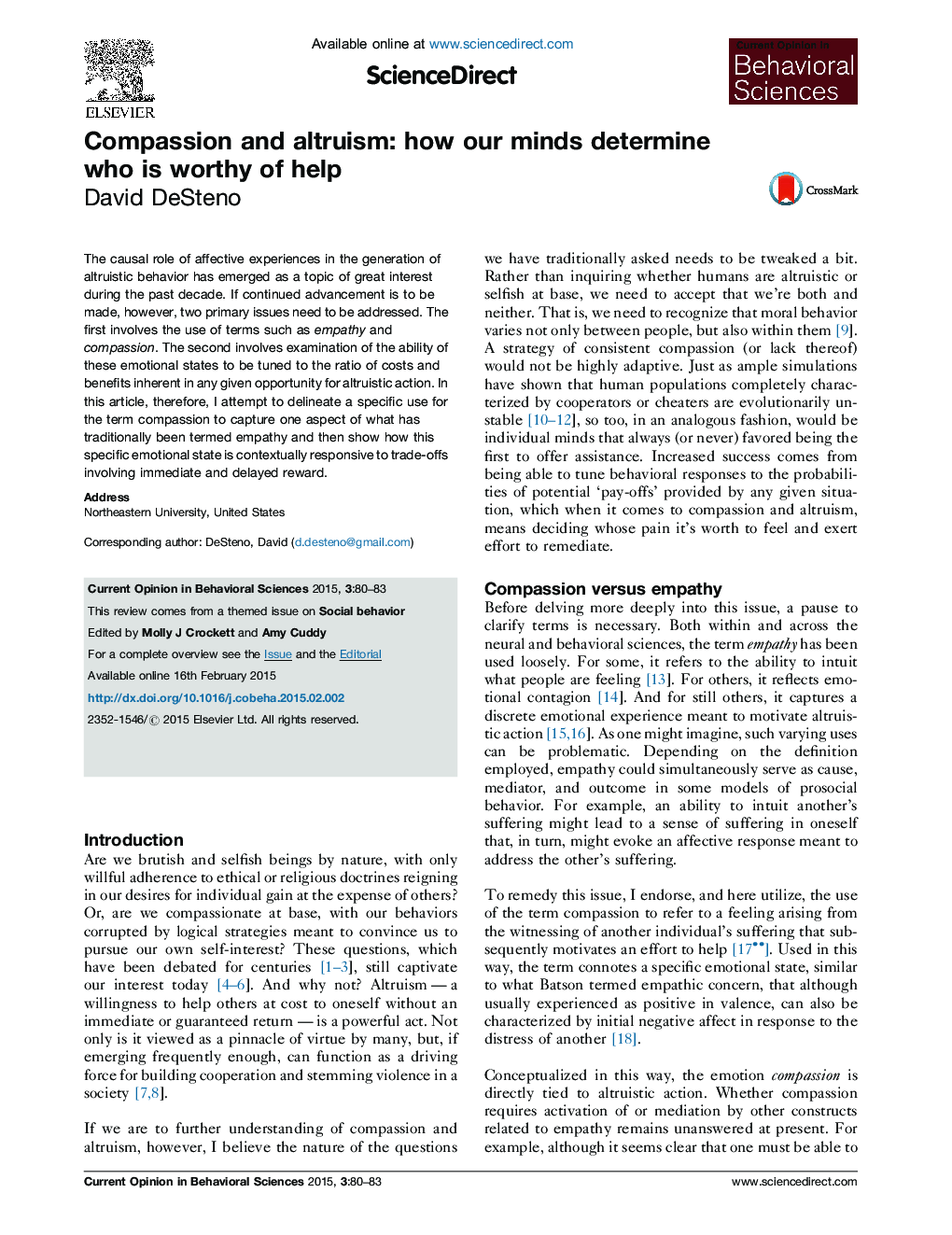| کد مقاله | کد نشریه | سال انتشار | مقاله انگلیسی | نسخه تمام متن |
|---|---|---|---|---|
| 4316388 | 1613087 | 2015 | 4 صفحه PDF | دانلود رایگان |
• I distinguish compassion from empathy to sharpen precision in terms.
• Compassion is a distinct emotional state that motivates altruistic action.
• Compassion is modulated by the likelihood that recipients will reciprocate.
• Compassion can be promoted through nonconscious nudges and meditation.
• Compassion functions as a mechanism for self-regulation meant to build social capital.
The causal role of affective experiences in the generation of altruistic behavior has emerged as a topic of great interest during the past decade. If continued advancement is to be made, however, two primary issues need to be addressed. The first involves the use of terms such as empathy and compassion. The second involves examination of the ability of these emotional states to be tuned to the ratio of costs and benefits inherent in any given opportunity for altruistic action. In this article, therefore, I attempt to delineate a specific use for the term compassion to capture one aspect of what has traditionally been termed empathy and then show how this specific emotional state is contextually responsive to trade-offs involving immediate and delayed reward.
Journal: Current Opinion in Behavioral Sciences - Volume 3, June 2015, Pages 80–83
